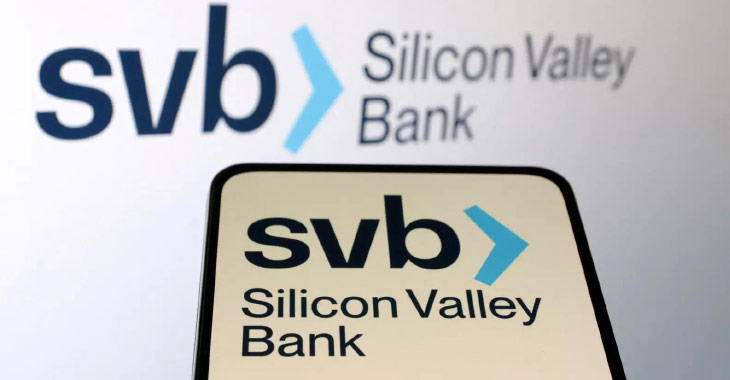Indian SaaS firms withdraw from Silicon Valley Bank due to stock crash
- ByStartupStory | March 11, 2023

Following the decline in stock prices of Silicon Valley Bank (SVB), Indian Software-as-a-Service (SaaS) firms that have operations in the United States are moving their funds to other global banks and neobanks based on guidance from venture capital investors.
On March 8, SVB Financial Group, the parent company of Silicon Valley Bank, announced that it had sold approximately $21 billion worth of securities from its portfolio. As a result, the company expects to incur an after-tax loss of $1.8 billion in the first quarter. This news caused a significant sell-off of SVB Financial Group shares on Wall Street, causing widespread panic among investors.
Despite being a trusted bank for numerous startup founders and investors, there is a sense of panic in the market regarding the possibility of funds becoming frozen in the near to mid-term.
An anonymous founder of a business-to-business (B2B) SaaS company stated that “they are transferring funds to other banks as a proactive measure to ensure that they can continue to make regular working capital payments. The founder clarified that their exposure to the situation is not significant”.
Despite having sufficient liquidity, the recent stock market crash has led many investors to recommend that startups withdraw their funds from the bank.
On March 10, Deepak Shenoy, the CEO and founder of CapitalMind, tweeted that “Silicon Valley Bank has a significant long-term portfolio that is indeed liquid, but currently at a substantially lower price. He also noted that the stock has decreased by 60%, and venture capitalists are advising startups to withdraw their funds. Shenoy emphasised that in the banking system, perception is equivalent to reality”.

According to Kanchan Kumar, the CEO and co-founder of Truly Financial, “although Silicon Valley Bank remains a stable institution, startups place great importance on their funds and are hesitant to take any risks. As startups rely on these funds for day-to-day payments, many are transferring their funds to other institutions”.
Several venture capitalists are cautioning companies to transfer their funds only to trustworthy banks. In a note to their portfolio companies, multiple VCs advised them to exercise care while selecting alternative banks, as transferring funds to India or extending loans to other entities could have future consequences.
With investors and SaaS experts issuing warnings, there is a growing sense of urgency to withdraw funds from Silicon Valley Bank.
A leading investor in SaaS and fintech advised their portfolio companies “to transfer funds exceeding $500,000 to other banks to cover short-term risks, but emphasised that there is no cause for panic”.
While many venture capitalists are urging companies to withdraw their funds from Silicon Valley Bank, some are reassuring them that the situation is not critical.
According to an investor who manages a SaaS accelerator fund, “Silicon Valley Bank has adequate funds to fulfill deposit obligations. However, the real danger arises if a large number of people withdraw their deposits, as some funds may be locked in for extended periods. The investor warned that attempting to take action in this situation could potentially result in a worse outcome than remaining with Silicon Valley Bank”.
In addition to its traditional banking services, Silicon Valley Bank also invests in startups. For instance, Netradyne, an AI software provider backed by Reliance, received $65 million in debt financing from SVB in September 2022.
Similarly, in October 2022, the SaaS unicorn Icertis secured $150 million in funding via a revolving credit facility and convertible financing from the bank.








